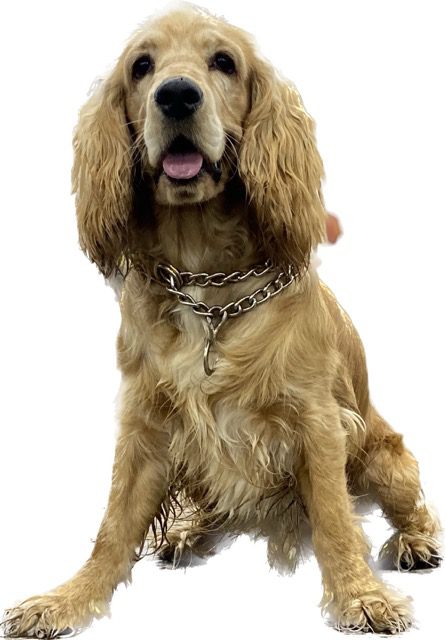
The Cocker Spaniel is an iconic breed of sporting dog that originated in the United Kingdom. Bred as early as the 14th century in the United Kingdom, Cocker Spaniels are thought to have a lineage that includes various spaniels, setters and spaniels bred with foxhounds or terriers. It is believed that the Cocker Spaniel’s ancestors were used as retrievers and gun dogs to hunt game birds.
Cocker Spaniels have an average height of 15-17 inches and an average weight of 24-30 pounds. They feature a long, silky and feathered coat and a slightly rounded head with a broad muzzle. Their ears are long and hang down near their cheeks and their eyes are large and full. Common color variations for Cocker Spaniels include black and brown, sable, golden, red, buff and silver.
It is believed that the Cocker Spaniel was created from multiple breeds, including Irish Water Spaniels, Sussex Spaniels and various unnamed spaniels. What makes Cocker Spaniels so special and different from other breeds is their intelligence and versatility. They’re known for their great sense of smell and affinity for retrieving, making them popular in hunting circles.
In addition, the breed is also known for being calm and docile, which makes them great pets for families. They can do well with children and other animals, and they are known for being easy to train.
The Cocker Spaniel is an intelligent, friendly and gentle companion. They are patient and tolerant and generally get along well with children and other pets, making an ideal family dog. However, they need plenty of socialization and training from a young age for them to reach their full potential. Cocker Spaniels are playful yet somewhat calmer than other breeds, which makes them a good choice for those living in apartments or other dwellings.
They do require regular exercise to keep in shape and mentally balanced, and their daily needs can be achieved through activity such as walking, running, or playing in the yard. Keeping a Cocker Spaniel indoors is suitable and with the right amount of activity provided, they can make an excellent indoor pet. They are generally calm and quiet, however they may bark in alarm or if excited. Cocker Spaniels form strong bonds with their owners and can make a wonderful and loving pet for those who have the time and energy to give them the attention, exercise and love that they deserve.
The Cocker Spaniel is an intelligent and active breed that will need a mixed diet rich in protein and vitamins to meet its nutritional requirements. Feeding guidelines for this breed should include a mix of both dry and wet food, treats, and a balanced diet with plenty of fresh water. Puppies will need larger portions, while adults should be fed about twice a day. Responsible ownership involves providing adequate medical care, exercise, and nutrition for the Cocker Spaniel.
A healthy diet for a Cocker Spaniel is important for maintaining their health and energy. High-quality dog foods are highly recommended to ensure a healthy diet; you can also add dietary variety with treats, fruits and vegetables, and a few table scraps. For more information on what foods are safe for your Cocker Spaniel and which ones to avoid, check out Way Canina. Here, you can learn more about your dog and their specific nutritional needs.
In summary, the Cocker Spaniel is an active and intelligent breed with specific nutritional requirements. Owners should research what foods are safe and unsafe for their pup and provide a balanced diet of both wet and dry food. Responsible ownership includes providing adequate medical care, exercise, and nutrition for the Cocker Spaniel. To learn more about your dog’s diet and nutritional requirements, check out Way Canina.
Cocker Spaniels are a medium-sized breed of dog and are known for their long, floppy ears. Common health issues that may affect this breed include ear infections, hip and elbow dysplasia, patellar luxation, and progressive retinal atrophy. A Cocker Spaniel may also have a genetic predisposition toward canine allergies and hypothyroidism. Regular veterinary check-ups, vaccinations, and preventive care are essential for early detection of health concerns and providing the best possible care for your pet. Grooming is also important for Cocker Spaniels; they should be brushed at least 2-3 times a week and receive baths every 2-3 months. Their ears should also be checked and cleaned regularly to help avoid ear infections.
The typical lifespan for a Cocker Spaniel is 10-15 years, although genetics, diet, exercise, and healthcare can all influence their longevity.
Are you thinking about getting a Cocker Spaniel or do you already own one? Whatever the case, it’s important to consider the costs, responsibilities, pros, and cons associated with any dog breed in order to make an informed decision. Our blog posts and articles on Way Canina are a great place to help you compare different breeds and learn more about the lifestyle and wellbeing of dogs.